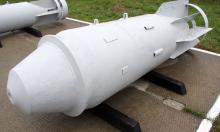Are you interested in future of Europe? Participate in continentwide Internet debate
The European Union plans to hold an EU-wide Internet consultation with its citizens in May before a summit to decide on the bloc's future after voters' rejection of its constitutional treaty last year, Austria's ambassador said Friday. On May 9, "there will be a kind of a vote by Internet about the ," Ambassador Gregor Woschnagg said.
Austria took over the presidency of the EU on Jan. 1 and is due to chair a summit in June to debate European integration in the wake of referendums in France and the Netherlands last year which rejected the EU constitution. "This is a very difficult dossier," Woschnagg acknowledged.
He said it was too early to say which questions would be posed to citizens in the Internet poll, which will be held on the day the EU honors one of its founding fathers, Frenchman Robert Schuman. Woschnagg told a think tank audience the EU had to look for a new message to inspire younger citizens who no longer remembered Schuman's efforts to unite Europe after the carnage of World War II. "This means nothing to the present generation," Woschnagg said. "We have this gap between the European establishment and the people."
Austria already plans a special conference in Salzburg this month to discuss Europe's future. The European Parliament will launch a new debate on the constitution next week. Among the issues that need to be debated is the EU's ability to take on more members following the entry of 10 new members mostly from eastern Europe. Romania and Bulgaria are due to join in 2007 taking the EU's membership to 27, but Turkey, Ukraine and candidates in the Balkans are facing increasing "enlargement fatigue" as they press their case for joining.
"We need to have a much clearer definition of the absorption capacity of the EU," Woschnagg told the Center for European Policy Studies. Polls show Austria has one of the lowest levels of public support for bringing in Turkey and other new members.
Woschnagg also criticized the EU's system of rotating presidencies saying it placed too heavy an organizational burden on the bloc's smaller members. "Everything is getting more or less too big to handle, even for a medium-sized country like Austria," he complained, reports the AP. N.U.
Subscribe to Pravda.Ru Telegram channel, Facebook, RSS!





